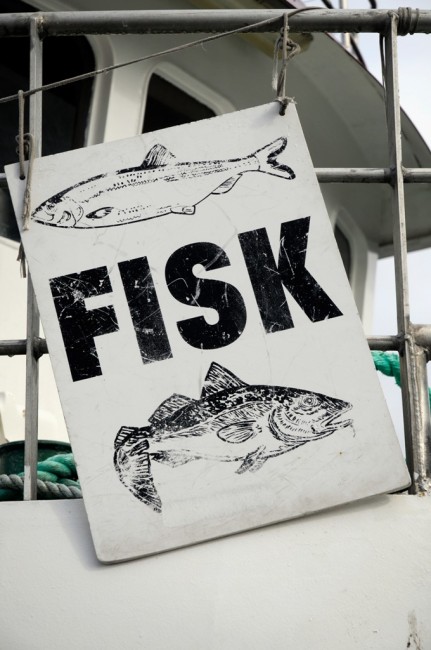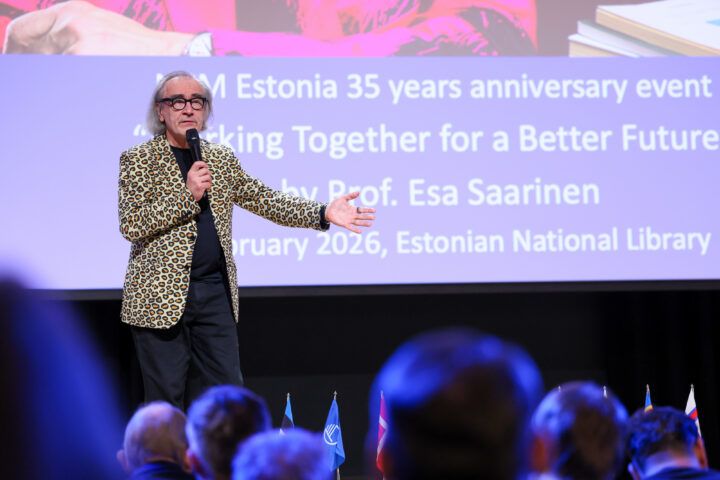Iceland could teach European Union how to maintain fish stocks

|
According to Icelandic Foreign Minister Össur Skarphéðinsson, there are only two regions in the world where cod stocks are increasing rather than decreasing – and the waters around Iceland are one of them. The EU’s current fishery policy designates that all of the waters within the union are for the joint use of member states and that fish can only be caught in accordance with pre-determined quotas. If one of these quotas is exceeded, the fish must be returned to the water. Environmental critics have labelled such activities damaging to nature. EU Commissioner for Fisheries and Maritime Affairs Joe Borg has conceded that there are shortcomings in the policy, which is planned to be reviewed by 2012. |
| To the Icelanders, the EU’s fishery policy to date has proven unacceptable. Skarphéðinsson, himself a former fisherman, has admitted that fishing will be the biggest sticking point in his country’s negotiations with the EU. Fish and fish products – which account for as much as 70% of Iceland’s exports according to the CIA’s World Factbook – are not only a question of economics to the Icelanders, but a highly emotive subject. The people of the country would not take kindly to Brussels offering them a rotten deal, says Skarphéðinsson. The Foreign Minister remarked that although it is becoming ever clearer to Iceland that the only way it will be able to defend its sovereignty is by sharing it, this does not mean that the island nation is also willing to share its fish stocks. In addition to its knowledge of the economical and successful use of such natural resources, Iceland will also be able to offer the EU the benefit of its experience in the field of renewable energy: the country covers 80% of its energy needs from renewable sources. Many supporters The other Nordic nations have welcomed Iceland’s intention of taking the extra step from simply cooperating with the EU to becoming a full-fledged member of the union. Carl Bildt, the foreign minister from Sweden, the presiding nation in the EU in the first half of 2009, agreed with his colleague Skarphéðinsson that Iceland has a lot of know-how to offer the EU in terms of how to effectively manage natural resources such as fish and renewable energy. “Iceland’s not on the fast track to the EU, but rather the short track,” he is quoted by news agencies as saying. “It’s already part of the union’s internal market, and the Schengen zone.” Estonia has expressed its full support for Iceland’s aspirations. “We’re 100% for the immediate launch of accession talks with Iceland and for Iceland joining the EU,” explained Estonian Foreign Minister Urmas Paet after a meeting of EU foreign ministers in Brussels. It was Iceland who, in August 1991, became the first country to recognise Estonia’s newly restored independence. Columnist Ahto Lobjakas, writing for the daily newspaper Postimees, noted that Estonia is also showing support for Iceland because its interests coincide with those of the Nordic countries. “In that sense Iceland’s accession is a good thing,” he remarked. “But this commonality of vested interests remains, by and large, wishful thinking.” Lobjakas added that the Estonian government’s aim should not be for the country to join the ranks of Europe’s wealthiest and most content, but for it to be on par with the Nordic nations. “But if that’s to happen they will have to start aiming very high,” he said. In its report on EU policy in April this year, the Finnish government stated that it would like to see all of the Nordic countries as member states of the union. Finland has therefore officially expressed its desire to see both Iceland and Norway – the two Nordic countries who have remained outside of the union to this point – as fully-fledged members of the EU. Eyes on Norwegians Nordic politicians and analysts are now wondering whether Iceland’s potential accession could persuade the Norwegians to lean towards joining the union. Norway is currently the only country in the region whose citizens have clearly expressed their reluctance to join the EU. However, one of the most convincing arguments for Norway taking up membership of the union, as per Iceland, lies in its fishing policy. This has led to speculation that the nation may consider joining the EU – instead of simply cooperating with it – if the Icelanders manage to negotiate an advantageous fishing agreement for themselves. Nevertheless, analyst Aslak Bonde, in the Nordic Council of Ministers’ Internet-based Analys Norden, points out that it has only ever been other countries prompting Norway to talk about the EU and never the Norwegians. In the 1960s they were urged to consider the benefits by the British; in the 1990s it was the Swedes who put pressure to bear. Result? Norway still sits outside of the EU, even though 75% of its legislation is virtually identical to EU laws and it profits from the union’s internal market. To date, the Norwegians have found this enough. Although Bonde says that the Icelanders may breathe life into the latest round of EU accession debates in Norway, he feels it is unlikely to sway the prevailing attitude of the Norwegians towards joining the union. However, the situation may well change if its existing economic cooperation agreement with the EU collapses in the event that Iceland is no longer a member of the European Free Trade Association (EFTA) with Norway and Liechtenstein. Bonde doubts the EU would go to great lengths to maintain the EFTA agreement, since it would benefit from Norway being a member of the union. Moreover, Bonde feels that the agreement places Norway at more of a disadvantage than an advantage, since the balance of power is firmly in favour of the EU. The Norwegians could also weigh up whether to enter into direct economic agreements with the EU, as Switzerland has done. Bonde also notes that fishing is one of the key issues for the Norwegians in weighing up whether to join the EU and that the success or otherwise of the Icelanders in their negotiations will not go unnoticed. At the same time, Bonde suspects the EU will not make major concessions in regard to Iceland. Economic and defence policy insecurity may also persuade Norway to more seriously consider EU accession, says Bonde. This could occur should anything have a significant impact on the stability of the Norwegian krone, highlighting the need to join the euro zone, or if Russia’s behaviour raises concern among Norwegians in the north of the country. However, Bonde considers both scenarios improbable. Icelanders have to decide Whether or not the 307,000 people of Iceland do become the fourth Nordic nation in the EU is something the Icelanders will have to decide for themselves. Despite the country’s application for accession, the population is divided in terms of support for joining the union. The vote in the Icelandic parliament was far from being overwhelmingly in favour of submitting the application: 33 of the 66 members of the Alþingi voted for the launch of negotiations, while 28 voted against and two abstained. The Capacent Gallup poll conducted in the country in early July is even more telling: 39% of respondents were for Iceland joining the EU, and exactly the same number were against accession. Nonetheless, the Icelanders are clearly in favour of negotiations being held if for no other reason than to find out what the union has to offer them. The decision the people of Iceland reach over the next three years will be revealed in a referendum. “Icelanders are proud, indefatigable and ready for anything, and so is our country,” author Hallgrímur Helgason once wrote of his nation. “You never know what will become of it. But when you are with the people of Iceland, you can be sure that something will.” Helgason’s words may well presage the outcome of the nation’s referendum: anything is possible. The European Commission will be presenting Iceland with a report later this year on what it needs to do in order to launch proper accession talks in 2010. |


